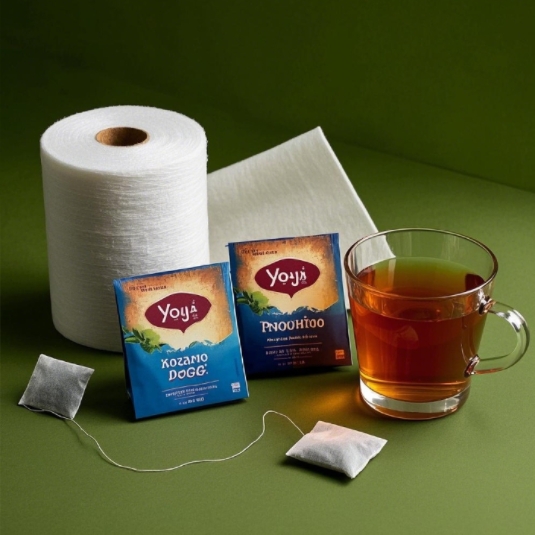Yogi Tea is one of the most recognized and beloved tea brands worldwide, known for its blend of health-conscious ingredients and eco-friendly practices. Over the years, Yogi Tea has embraced sustainability in various aspects of its production, including the materials used in its tea bags. With growing interest in whether Yogi Tea bags are toxic and which materials are used, this article dives into the details of Yogi Tea bag types, materials, and the overall safety of their tea bags.
What is Yogi Tea?
Yogi Tea is a brand that specializes in organic herbal and functional teas. Their focus is on wellness and holistic health, using a range of herbal ingredients known for their health benefits. From boosting immunity to promoting relaxation, Yogi Tea’s offerings are designed to provide not just a tasty cup of tea, but a holistic experience for body and mind.

Their commitment to sustainability and natural ingredients extends to every aspect of production, including their tea bags. As the brand continues to grow, so does the awareness of the materials used in their tea bags, which brings us to an important question: Are Yogi Tea bags toxic?
Yogi Tea Bag Types
Yogi Tea offers a wide range of tea bag types, each catering to specific health needs and preferences. Some of the most popular Yogi Tea series include:
- Herbal Tea Series
Yogi’s herbal tea collection features teas like Chamomile, Mint, Ginger, and Lemon Balm. These teas are often chosen for their soothing and relaxing properties. - Functional Tea Series
Yogi’s functional teas include blends designed for energy, digestion, immunity, detox, and relaxation. Popular offerings include Energy (with green tea), Echinacea Immune Support, and Detox (featuring dandelion and ginger). - Chai Tea Series
The Chai blends, such as Classic Chai and Masala Chai, are crafted with aromatic spices like cinnamon, ginger, and cardamom, combining traditional Indian flavors with health-boosting properties. - Organic Tea Series
For those seeking organic options, Yogi offers a range of certified organic teas, including Organic Green Tea and Organic Sweet Hibiscus.
What are yogi tea bags made of?
As Yogi Tea continues to embrace sustainability, their tea bags have evolved over the years. Currently, most of Yogi Tea’s bags are made from nonwoven fabric. This includes their herbal, functional, and organic tea collections. Nonwoven fabric is chosen for its combination of durability, breathability, and eco-friendliness.
These nonwoven tea bags are crafted using natural and biodegradable materials, ensuring that they are free from harmful chemicals. By using nonwoven fabric, Yogi Tea maintains a commitment to reducing plastic usage in their products.
Are Yogi Tea Bags Toxic?
One of the most common questions about Yogi Tea is whether their tea bags are toxic. With increasing awareness of the potential health hazards of certain plastics and chemicals in packaging, many consumers are concerned about the safety of tea bags.
The answer is no, Yogi Tea bags are not toxic. Yogi Tea has made a deliberate effort to use natural, non-toxic materials in its tea bags. While traditional tea bags were often made from synthetic fibers like nylon or polyethylene, Yogi Tea has switched to biodegradable nonwoven fabrics, which are much safer for both health and the environment.
Importantly, Yogi Tea bags are free from plastic and do not contain harmful chemicals like BPA or PVC, which are commonly found in some other tea bags. By avoiding these substances, Yogi Tea ensures that their products are safe for consumers.
What Nonwoven Fabric Materials Are Used in Yogi Tea Bags?
Yogi Tea uses natural nonwoven fabrics made from biodegradable materials that meet the brand’s high standards for health and sustainability. These materials include:
- Cellulose (Wood Pulp)
Cellulose is one of the primary materials used in Yogi Tea bags. It’s derived from wood pulp and is fully biodegradable. Cellulose nonwoven fabric has excellent breathability, ensuring that the tea can infuse properly while maintaining its flavor and aroma. - PLA (Polylactic Acid)
PLA is a bio-based plastic made from renewable resources like cornstarch or sugarcane. Some of Yogi Tea’s bags may use PLA blends, which are fully compostable and environmentally friendly. PLA non-woven fabric is used for its strong filtration properties and its ability to break down without leaving harmful residues. - Cotton Fiber
Some of Yogi Tea’s bags may contain cotton fibers, especially in their organic or herbal collections. Cotton is a natural, biodegradable material that ensures the bags are durable and free from synthetic substances.
Yogi Tea’s Commitment to Sustainability
Yogi Tea places a strong emphasis on sustainability throughout its entire production process. From sourcing organic ingredients to using eco-friendly packaging, the brand is continuously striving to minimize its environmental impact. The shift to biodegradable nonwoven fabric tea bags is just one example of this commitment.
In addition to using safe, non-toxic materials, Yogi Tea also ensures that their tea bags are free from metal staples and other non-compostable elements. This makes their tea bags safer for both the consumer and the planet, as they can be composted or disposed of in an eco-friendly manner.
